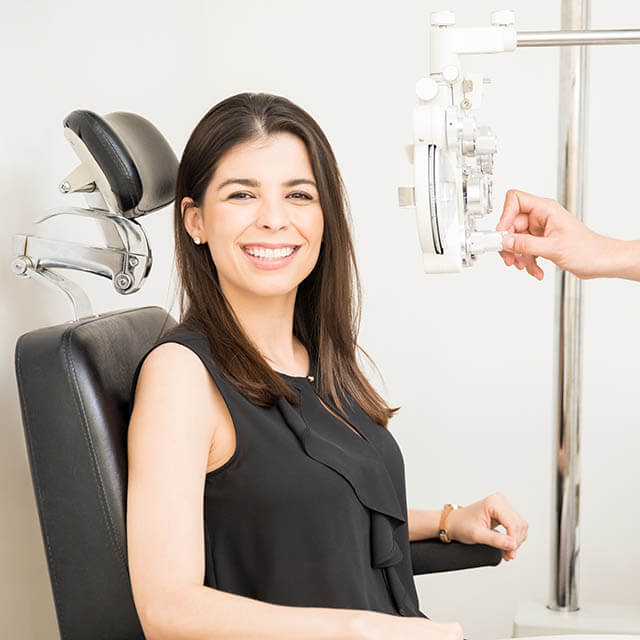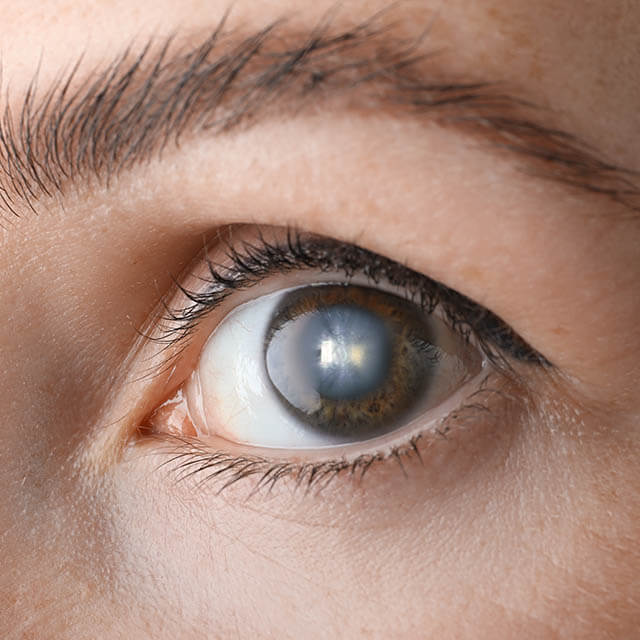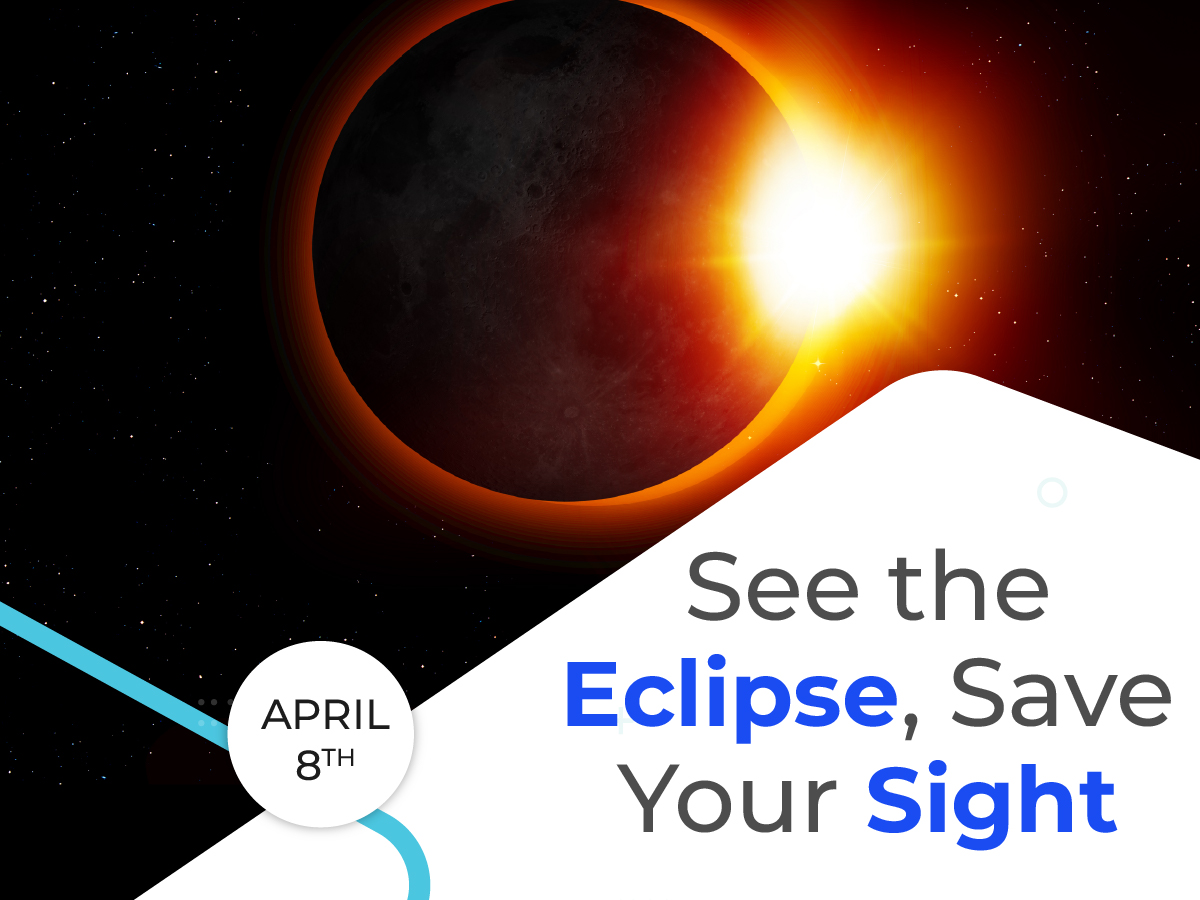Expert Eye Disease Management
Receiving an eye disease diagnosis can be concerning, and we understand that. That’s why at Sheridan Optometric Centre, we do our best to provide you with the most compassionate and expert care. Our team has effective treatment options that can improve your vision and help prevent vision loss. Contact us today to request an appointment.
Diagnosing and Treating Eye Diseases

Our team has extensive experience detecting and managing various eye conditions, ensuring that appropriate treatment plans are designed to help prevent loss of vision. Simply schedule a comprehensive eye exam with us, and we will thoroughly assess you for existing or potential eye conditions that may require attention.
We diagnose eye diseases such as:
- Diabetic retinopathy
- Cataracts
- Glaucoma
- Macular degeneration
Understanding Diabetic Retinopathy and its Treatment
Diabetic retinopathy occurs when the tiny blood vessels in the retina weaken and become inflamed due to high blood sugar levels. These vessels can bleed as they grow, potentially causing severe vision loss or even blindness in extreme cases.
The disease is however known to progress through four stages: mild nonproliferative diabetic retinopathy, moderate nonproliferative diabetic retinopathy, severe nonproliferative diabetic retinopathy, and proliferative diabetic retinopathy.
In its early and intermediate stages, there are often no symptoms or warning signs. However, as the disease progresses and the macula (central part of the retina) becomes inflamed, you may experience discomfort or blurred vision.
We can help you manage diabetic retinopathy before any vision loss occurs. Treatment and management options include
- Medication
- Anti-VEGF or steroid injections
- Laser surgery
- Vitrectomy
What is Glaucoma and How Can it Be Treated?
Glaucoma is a group of eye diseases often caused by a buildup of pressure within the eye. The longer the pressure builds, the more damage it causes, especially to the optic nerve.
Glaucoma mostly affects adults over 40, but young adults, children, and even infants can also suffer from this serious eye condition, with its risk factors including age, ethnicity, family and medical history, as well as extreme nearsightedness or far-sightedness.
Without medical intervention, glaucoma can worsen, resulting in permanent vision loss or blindness. The sooner glaucoma is diagnosed, the sooner you begin treatment to stop or slow the disease’s progression, making regular eye exams crucial for preserving vision.
The condition cannot be cured as of now, unfortunately, but there are several treatments that can help slow down its progression. These treatments include:
- Eye drops
- Oral medications
- Drainage tubes
- Laser therapy
- Filtration surgery
- Minimally invasive glaucoma surgery (MIGS)


When Should You Get Glaucoma Surgery?
In general, surgery isn’t the first line of treatment for glaucoma. But if other treatments fail, glaucoma surgery may be able to save your vision. Most people who undergo glaucoma surgery find its benefits to be long-lasting. But for a few others, additional surgery may be needed.
What are Cataracts and How Can They Be Treated?
Cataracts occur when the lens inside your eye becomes cloudy, gradually reducing the amount of light that can pass through it. This can make your vision appear as if you're looking through a dirty window. Not all cataracts develop at the same pace, and certain risk factors, such as diabetes, smoking, and excessive alcohol use, can accelerate their development.
If your cataract has reached an advanced stage, your eye doctor may recommend cataract surgery. This safe procedure involves replacing the cloudy lens with a new intraocular lens (IOL) to restore clear vision.
Understanding Macular Degeneration and its Treatment
Age-related macular degeneration (AND) occurs when the central part of the retina, which helps us see and sends images to the brain, starts to regress. Instead of clear and vibrant images, you may notice that your vision becomes blurry or distorted as if looking through a foggy or hazy lens.
There are two types of macular degeneration: dry (atrophic) and wet (exudative). Unfortunately, there is no treatment for dry AMD at the moment. However, if you have significant vision loss, some nutritional supplements, including vitamin C, vitamin E, zinc, and copper, may help. But you should speak with an eye doctor near you to determine what’s best for your case.
On the other hand, for wet AMD, you may need one of the following treatment options:
- Anti-VEGF injections
- photodynamic therapy (PDT)
- Laser photocoagulation

At Sheridan Optometric Centre in Mississauga, we offer comprehensive eye exams that involve various tests to assess the eye health of every member of your family, from the young to the aged. Contact us today to schedule an appointment for all of your family's eye care needs.
Eye Disease Management | FAQ
Eye Disease Management in Mississauga
Vision problems, whether due to glaucoma, cataracts, macular degeneration, or diabetic retinopathy, can affect all aspects of your life and limit how you experience the world around you. At Sheridan Optometric Centre, we can help you manage your current symptoms and rediscover clear vision for the kind of life you truly desire.
Request an appointment with our optometric team and we’ll help find the best solution for your condition.



